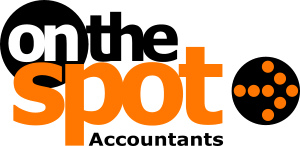#Budget2015 - Game, Set and Match
Among the rallies did the Chancellor win out overall? On the basis this looks like a revenue raising budget, yes he did, but did you? If we're looking for aces and deuces, there may be a few.
Aces
There were a few aces served up on behalf of small businesses during the 'game'. These include:
- The reduction in corporation tax to 18% always welcome by all businesses.
- Permanency of 100% capital allowances for spend of up to £200k each year provides certainty in investment decisions and supports the recurring poor UK productivity conversations taking place recently.
- The widely touted IHT (inheritance tax) saving when passing on the family home to direct descendants helps business owners who invest their profits into their family home.
Double Fault
However, small businesses may not be impressed with the double fault:
- Increasing dividend tax from 0% to 7.5% on dividends over £5k within the 20% basic rate income tax band is a classic example of extending the reach without increasing the rate.
- Add on the 32.5% rate on dividends within the higher rate band which looks the same as it is today, but is an increase from a net 25%, and you have a disincentive to incorporate, at least until the lower corporation tax rate kicks in.
- This looks like a way to recover more tax from consultancy/freelance companies who are genuinely self employed and can arrange their remuneration tax efficiently in the same way as any other owner-director.
Deuces
A further disadvantage for consultancy/freelance companies but bringing some advantage to small businesses with staff:
- Increasing the Employment Allowance from £2k to £3k saving more employer's national insurance could encourage a small business to employ a person on a £30k salary or 3 people on a £15k salary. With part timers, under the £8k threshold, it's not unusual for small business to have quite a few employees but no employer NI bill.
- On the other hand the Employment Allowance will not be available at all to 100% owner-director companies who have been able to save about £200 by increasing their salary slightly. This simply revises their salary back to pre Employment Allowance levels, currently about £8k.
- With the dividend rate changes, owner-directors will use their remaining tax free personal allowance, currently about £2k, to save some of the new 7.5% or 32.5% income tax rate on dividends above £5k.
- They may also tip the balance to taking more dividends out this year, perhaps with employer pension contributions while you can.
Five Setter
It was a long game going to five sets covering other important areas such as:
- Buy-2-let property owners by their sheer numbers are a relatively easy target to help raise more tax by restricting interest relief on buy-2-let loans to to basic rate tax and taking away the 10% wear and tear allowance.
- Encouraging more rent-a room use of your own property by increasing the tax free income from £4,250 to £7,500, a 76% increase! Coupled with the IHT improvement is telling us to live in bigger homes and rent a room out rather than invest in a buy-to-let!
- Bringing in non-Doms to the 'normal' tax net when they have either been borne to UK parents or have lived in the UK for 15 out of 20 years. Another example of extending the reach without increasing the rate.
- Withdrawal of corporation tax relief on goodwill on acquisition of a business but allowing a lesser, non trading loss, relief on ultimate sale. An interesting way to provide a net relief, and will keep tax advisers and commercial lawyers very busy in future business sales.
- Ensuring that when stock is sold it's sold at market value and not a more tax efficient value agreed between both parties has clearly been identified as an area with some tax leakage.
Winners and Losers
Losers continue to be higher and additional rate taxpayers including consultants/freelancers. This means any future increase in the higher rate income tax threshold is very welcome providing a whole host of knock-on effects such as for dividend tax, capital gains tax, and pension reliefs. Winners continue to be trading businesses employing staff, low paid earners and many basic rate taxpayers.
Whether the Chancellor can continue to serve at this pace into the next Budget in March 2016, we will soon find out.
